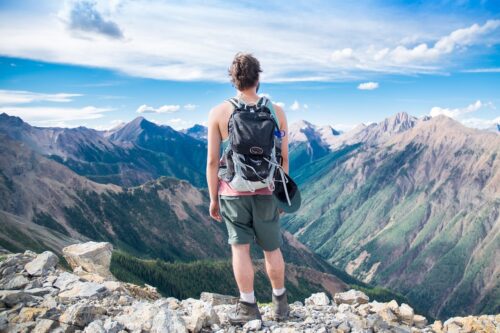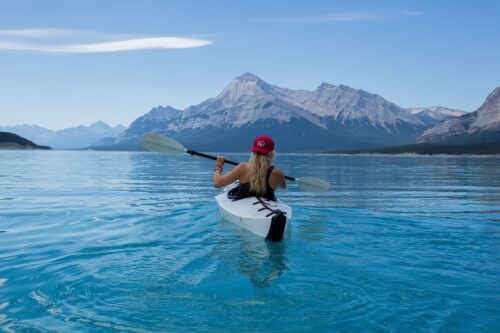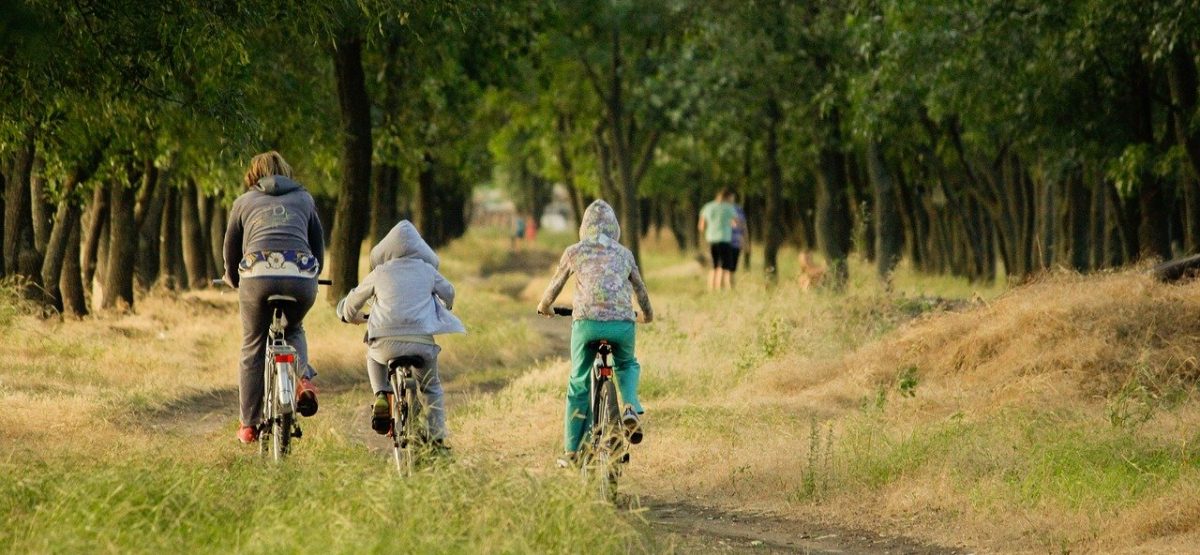What is this counseling all about? The treatment is more exciting because it has something to do with nature. It is more convenient and affordable. Learn more about adventure therapy here in this article.

Adventure therapy offers many activities that families, friends, and loved ones can participate in for healing and recovery’s sake.
Understanding The Significance Of Adventure Therapy
It is a type of counseling that involves various experiential activities in the form of traveling. Most activities are done outdoors, which may include camping, hiking, rock climbing, mountain trekking, sailing, and other cooperative activities. The exercises will benefit the participants in various ways. It will help them to explore their personal matters in a safe and encouraging environment with the help of a mental illness or relationship therapy expert or adventure therapist.
Experiential education and adventure-based therapy can offer a safe and supportive environment for individuals to work on their psychological well-being and physical health. Outdoor therapy programs can provide a variety of benefits for troubled youth and individuals struggling with mental health issues. Engaging in outdoor activities can increase self-awareness and promote positive treatment outcomes by connecting individuals with nature and providing opportunities for positive behavior. You can say the benefits of adventure outweigh its cons.
Adventure therapy is similar to wilderness counseling but different in that it entails overcoming natural consequences or man-made challenges, while wilderness type of treatment facility utilizes landscapes and weather as an exciting and productive element. Both of those types of treatment use adventure activities and have been proven to increase self-confidence and other negative behaviors.
The Many Benefits Of This Activity-Based Psychotherapy
What is the process of the treatment, and how is it beneficial to individuals?
Wilderness expeditions can be a powerful tool in the recovery process for individuals struggling with mental health issues. Participating in adventure activities such as problem-solving initiatives, cooperative games, and new challenges can promote self-esteem and increase efficacy beliefs. These activities are often designed to create a sense of perceived risk and achieve therapeutic goals, which can help individuals overcome feelings of anxiety or self-doubt.
Adventure therapy is an activity-based type of psychotherapy. It has other different names, such as healing excursions, wilderness experience, and travel healing. Having fun is the second objective of such activities involved in the treatment. Our first objective is to gain valuable life lessons, which include cooperating with a small group of people, learning teamwork, understanding differences, and realizing the effects of truly poor decisions on others, which has benefits to its participants.

Unveiling Personal Transformation: Exploring the Transformative Powers of Adventure Therapy in Healing, Growth, and Self-Discovery
Adventure therapy focuses on deep and painful issues of those in the activity. It brings those issues to light to give all participants a chance to face and solve them. This action is necessary for personal healing and growth.
Engaging in structured activities that involve high adventure and direct experience can be an effective way to reduce stress and promote an individual’s physical and mental well-being. These activities, such as rock climbing or hiking, provide a unique challenge that can increase self-efficacy and promote group cohesion. In addition, the physical exertion required for high-adventure activities can also release endorphins, which can contribute to feelings of happiness and reduce stress levels. Overall, participating in high-adventure activities can provide a holistic approach to promoting an individual’s physical and mental health.
Participants in adventure therapy will gain skills in understanding different individuals and how to be effective as a person in a group.
Guide On How To Build Trust, Positivity, Intrapersonal Learning, And Growth Among The Members Of The Community
A community of people will also learn to assess the strengths and weaknesses of their members and use these to everybody’s advantage. As a result, it will promote intrapersonal learning and growth.
A research-trained professional will encourage all participants to be active and responsive to this whole activity and not become passive participants in the adventure therapy. It is through the use of ideal strategies and practices.
All participants will learn how to use questioning techniques and debriefing methods to aid other members in promoting awareness and motivation to reach personal objectives.
Such activities and discussions during this type of therapy will promote trust between each member of the group. It will also help in solving the disagreement between members as they advance through such activities.
They will also learn to accept feedback from other members as positive criticism and vice versa.

All About Wilderness Therapy
The participants of this experiential therapy will do a detailed written journal about their experiences. However, a therapeutic recreation journal is for their private viewing and use. The adventure therapy program planning expert will read it like during traditional therapy, but it will serve as a tool in their mental health treatment to record their feelings, experiences, and thoughts and then use it as a self-reference to improve social skills and other healthy coping skills. It is also useful in future residential treatment sessions to help them see their progress over time. Additionally, this procedure is also beneficial to young adults that have difficulty expressing what they honestly feel. The contents of their journal may be a private thing. However, it will reduce their tendency to isolate their thoughts and feelings.
The Role Of Expressive Writing in Mental and Emotional Wellness
Here are some of the ways how journaling can help individuals with mental and emotional wellness
-
-
- “There’s a lot of science grounding expressive language writing and journaling as being an extremely helpful piece for maintaining mental wellness.” – Deborah Serani, PsyD
- “Giving people a space to explore their feelings related to suicide often helps them process their feelings.” – Daniel Reidenberg, PsyD
- “Create two columns: On the left side of the paper, vent your negative, self-loathing statements. Then read each statement as if your child or loved one is reading them to you. Write a self-compassionate response to each negative statement.” – Karin Lawson, PsyD
-
Final Thoughts And Takeaway To Consider
Adventure therapy is a successful promising alternative to regular counseling. Such quality programs have many advantages in supporting both physical and mental health issues such as anxiety, depression, grief, substance abuse, and other disorders. It is advisable to inform individuals close to you about this type of relationship that doubles as experiential learning if they need to engage in one.
Frequently Asked Questions
Is Exploration Good For Mental Health?
Yes. Exploration in natural settings can be beneficial for mental health, including individuals and families dealing with mental illness, in various ways. Engaging in exploration activities can reduce stress, boost mood, increase self-awareness, and promote mindfulness. It can also enhance physical health, strengthen social connections, and build confidence and resilience for both individuals and families. However, the effectiveness of exploration on mental health can vary from person to person, and it’s important to consider individual and family preferences and needs when engaging in such activities.
What Does Exploration Experiences Treatment Do?
Exploration experiences treatment, which blends outdoor adventures with evidence-based therapy, aims to boost long term mental well-being. It has been shown to reduce stress, enhance mental health, foster self-awareness, physical health, and resilience. This approach promotes mindfulness and sustainable personal growth when conducted safely and tailored to individual needs.”
What Are The Health Benefits Of Participating In Exploration Treatment?
Exploration treatment, a combination of adventure and therapy in natural settings, offers numerous health benefits for individuals, families, and people seeking personal growth. It reduces stress, improves mental health, and increases self-awareness through outdoor activities. Physical health is enhanced, and social connections are strengthened as participants build confidence and resilience. While exploration treatment can be a powerful tool for well-being, it should be conducted safely and is often used in conjunction with other therapeutic methods, particularly when guided by mental health professionals, tailored to individual needs.
What Is The Goal Of Exploration Treatment?
When Did Adventure Therapy Start?
In the 1960s, adventure therapy emerged as a unique treatment approach, harnessing the therapeutic potential of nature, community, and physical activity within psychotherapy. This therapy adventure approach later evolved into therapeutic wilderness programs, and today, adventure therapy is a recognized therapeutic method emphasizing personal growth through outdoor experiences. The benefits of adventure therapy have since become increasingly recognized and studied for their positive impact on an individual’s mental and emotional well-being.
How Does Adventure Improve Mental Health?
Engaging in adventure activities can significantly enhance mental health by reducing stress, boosting mood, and increasing self-esteem, making it particularly beneficial for individuals dealing with depression, anxiety, and eating disorders. These experiences also promote mindfulness, social connection, and resilience while offering a healthy outlet for processing emotions. However, it’s essential to remember that adventure activities may not be suitable for everyone and should not replace professional mental health therapy when needed. Adventure therapy can complement traditional interventions and provide a valuable means of enhancing well-being when incorporated into a comprehensive treatment plan.
Who Created Adventure Therapy?
How Long Has Wilderness Therapy Been Around?
What Is A Wilderness Camp?
Why Do People Go To Wilderness Therapy?
People opt for wilderness therapy for reasons like personal growth, connecting with nature, and addressing behavioral and mental health issues. These programs often involve licensed therapists and guides, but it’s crucial to select one that aligns with individual needs. After completing the program, individuals typically continue with follow-up treatment to maintain progress and stay connected to nature.
